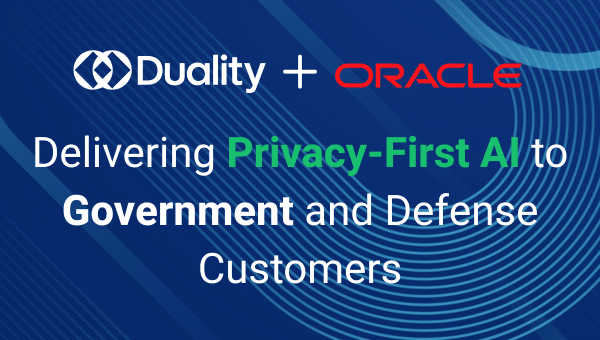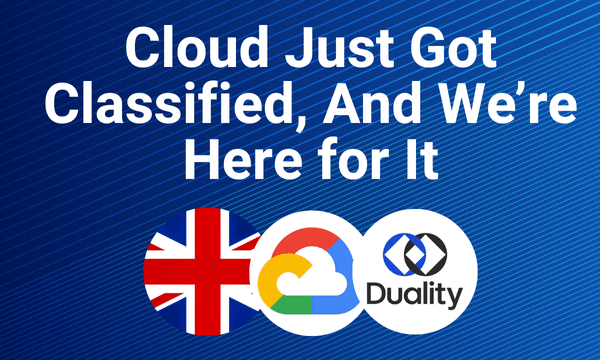Last week in London marked a significant milestone for Duality. Following the announcement of our UK Advisory Board, comprised of General Sir Chris Deverell, Matthew Gould, and Sir Alex Younger, we had the privilege of hosting two executive dinners, chaired by our esteemed advisory board members.
Discussions centered on critical topics shaping the UK’s future: AI, data collaboration, national security, healthcare, and citizen services. The UK Government has placed these issues high on its agenda, as highlighted by The Rt Hon Peter Kyle MP, Secretary of State for Science, Innovation and Technology, in his recent AI Opportunities Action Plan. This initiative emphasizes the need to unlock both public and private datasets, ensuring their value is realized while maintaining public trust. Key components include establishing a National Data Library for cross-government data insights, better-leveraging health data for improved outcomes (both domestically and with international partners), and recognizing AI’s growing role in both economic competitiveness and national security.
Achieving these ambitious goals requires multiple organizations to unlock, access, and analyze sensitive data – an inherently complex challenge. Our dinners convened leaders from the UK’s national security, defense, central government, and health agencies, alongside key technology and service providers, to tackle one central question: What will it take for His Majesty’s Government to successfully harness data and AI to drive the outcomes it seeks for citizen services, national security, the economy, and public health?
Despite attendees’ diverse backgrounds, a few key themes consistently emerged:
- The critical role of privacy and security – Protecting data and analytics is not just about compliance; it’s about earning and maintaining public trust. We concluded that policy and process alone are insufficient and that advanced technologies must be leveraged to ensure data security throughout its lifecycle.
- Data readiness as a prerequisite for AI – AI-driven insights are only as good as the data that fuels them. Is the UK’s data prepared for this transformation? A crucial challenge is enabling agencies to understand and trust each other’s data, which requires standardized definitions and interoperable technology and frameworks.
- Cultural barriers to collaboration – Many government entities are not accustomed to sharing data, often due to a sense of ownership or concerns over security. Overcoming these hesitations demands a focus on high-impact use cases with mutual benefits, demonstrating value before expanding collaboration more broadly. Again, technology can serve as a bridge, enabling secure cooperation between organizations that might otherwise be reluctant to work together.
These discussions reinforced our sense of purpose at Duality: enabling our government customers to unlock the full potential of data while upholding privacy, security, and sovereignty.
Secure data access and analytics is not just a technical challenge, it is foundational to delivering exceptional citizen services, advancing healthcare, fostering economic growth, and ensuring national resilience. Too often, organizations are held back by privacy concerns, regulatory constraints, and technological limitations, all of which are challenges that today’s privacy-enhancing technologies can solve.
The future of AI and data collaboration hinges on our ability to innovate responsibly. By adopting cutting-edge privacy-preserving solutions, governments can break down silos, enhance security, and drive transformative outcomes. At Duality, we are committed to making this vision a reality, because a better future for all depends on it.
















